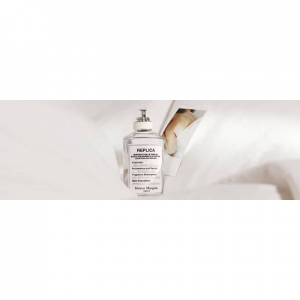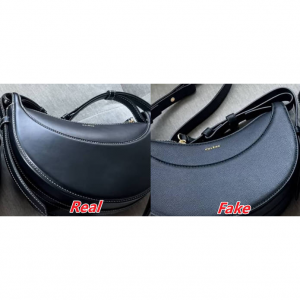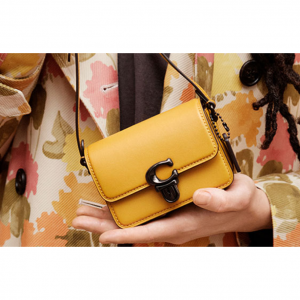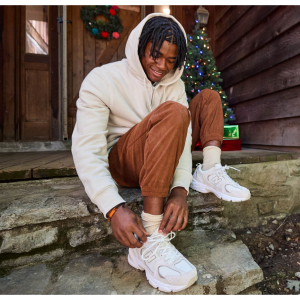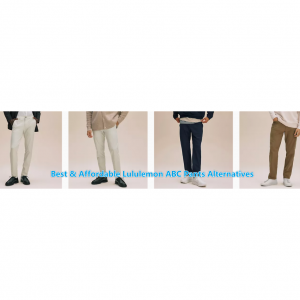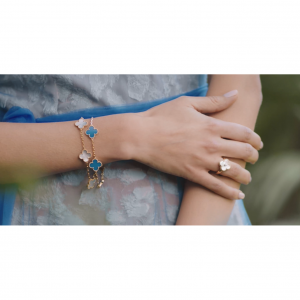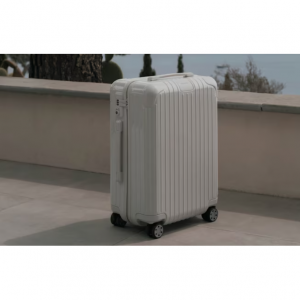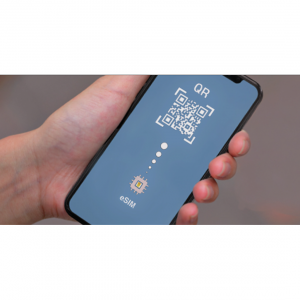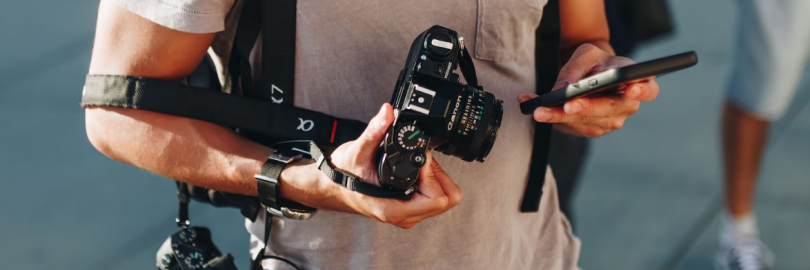
Canon G7X Mark II vs. Sony ZV-1 vs. Nikon Z30: Pros & Cons and Final Verdict
- The Canon PowerShot G7 X Mark III, Sony ZV-1 and Nikon Z30 perform similarly. They're all compact cameras with sensors that are similar in size and build quality. So is it worth to buy Canon G7X Mark II? Is the Sony ZV-1 good for photos? Or is Nikon Z30 good for photography? Let's read on the following sections in order to better understand in detail how Canon G7X Mark II, Sony ZV-1 and Nikon Z30 compares and hopefully end up with enough arguments to decide which one is better for you.
Canon PowerShot G7 X Mark II Overview
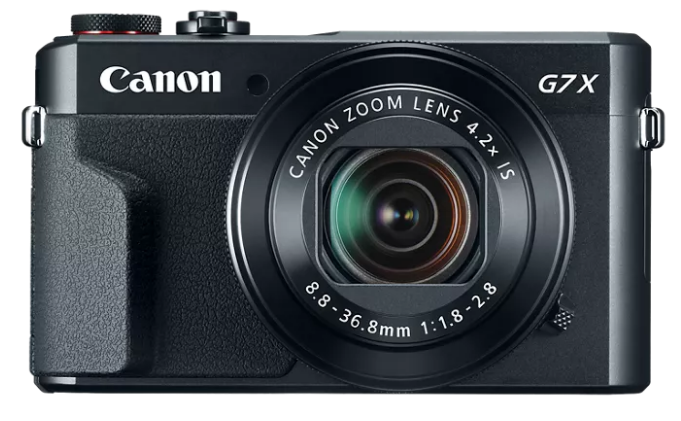
Combining professional-level photography within a slim body, this Canon Powershot camera gives you the best of DSLR photography with compact camera convenience. A 20.1-megapixel CMOS sensor and DIGIC 7 processing deliver fabulous photos, and a 4.2x optical zoom means you can get super-close to the action. The integrated Wi-Fi on this Canon Powershot camera lets you instantly connect and transfer your images.
The PowerShot G7 X Mark II can step in where more advanced cameras create a gear heavy, cumbersome operation. This pocket-friendly point-and-shoot camera offers the opportunity to gauge the subject and composition, and quickly dial in the settings needed to render the perfect shot. And, if you happen to miss the mark, the large sensor captures the data needed to crop to a frame-worthy photo.
Canon G7 X MII Key Specs
Announcement Date: 2016-02-18
20MP - 1' BSI-CMOS Sensor
ISO 125 - 12800 ( expands to 25600)
24-100 mm F1.8-2.8 Zoom Lens
Optical Image Stabilization
3.00" Tilting Screen
8.0fps continuous shooting
Full HD - 1920 x 1080 video resolution
Built-in Wireless
319g. 106 x 61 x 42 mm
Replaced Canon PowerShot G7 X
Advantages and Disadvantages
| Pros | Cons |
|
|
Where to Buy Canon G7 X MII Cheapest?
Canon:$629.99:(up to 2.5% cashback)
Best Buy: Starting at $629.99 (up to 0.5% cashback)
B&H Photo Video:Starting at $629 (up to 1.5% cashback)
What's in the Box?
Canon PowerShot G7 X Mark II Digital Camera
Canon NB-13L Lithium-Ion Battery Pack (3.6V, 1250mAh)
Canon CB-2LH Battery Charger for NB-13L Li-Ion Batteries
WS-DC12 Wrist Strap
Limited 1-Year Warranty
Who Should Buy Canon PowerShot G7 X Mark II?
Canon PowerShot G7 X Mark II can be ideal for travel, events, and anywhere on the go, or as a secondary camera.
The Mark II suffers from the same deficiency as plagued its predecessor: the lack of a viewfinder (or any way to attach one). This is likely to deter many potential purchasers. No matter how good LCD (and OLED) screens are, in bright sunlight, they force users into point-and-guess framing most of the time.
Money Saving Tip:
If you like online shopping, don't forget to sign up at Extrabux!(What is Extrabux) , then you can enjoy up to 30+% cashback on your purchase from Extrabux! Sign-Up Bonus: Free to join it & get $20 welcome bonus! Student Benefits:As long as you are a student at school, you can get a free whole year long VIP Card worth $199.
Extrabux.com cooperates with many merchants, such as: Walmart (Up to 4% cashback), Sephora(4% -5% cash back),Dior (Up to 6% cash back), Moosejaw (5% -6% cash back), LOOKFANTASTIC (Up to 10% cash back), Microsoft (Up to 7% cash back) and so on.
Sony ZV-1 Overview

The Sony ZV-1 was designed with vloggers and video content creators in mind. That explains why it packs most of the useful features that any YouTuber would need for a seamless vlogging experience.Among these features is the flip-out touchscreen, which is one of the most essential things that any vlogger would want in a camera!
ZV-1 also comes with an amazing built-in microphone which complements the flip-out screen for a perfect front-facing recording. And with the 3.5mm mic jack, you can plug an external mic for an even better audio quality.With this camera, you get unlimited video recording. But just so you, the battery tends to run out after about 1 hour of shooting at 1080p. That’s why we recommend packing extra batteries or a power bank for a smooth experience!
Sony ZV-1 Key Specs
Announcement Date: 2020-05-27
20MP - 1″ BSI-CMOS Sensor
ISO 125 - 12800 ( expands to 80 - 25600)
24-70 mm F1.8–2.8 Zoom Lens
Optical Image Stabilization
3.00" Fully Articulated Screen
24.0fps continuous shooting
4K (UHD) - 3840 x 2160 video resolution
960fps High-Speed Video
Built-in Wireless
294g. 105 x 60 x 44 mm
Advantages and Disadvantages
| Pros | Cons |
|
|
Where to Buy Sony ZV-1 Cheapest?
B&H Photo Video:Starting at $748 (up to 1.5% cashback)
Adorama:Starting at $748 (up to 8% cashback)
What's in the Box?
Sony ZV-1 Digital Camera (Black)
Sony NP-BX1/M8 Rechargeable Lithium-Ion Battery Pack (3.6V, 1240mAh)
Micro-USB Cable
Wind Screen
Wind Screen Adapter
Limited 1-Year Warranty
Who Should Buy Sony ZV-1?
Sony ZV-1 Digital Camera for Content Creators, Vlogging and YouTube with Flip Screen, Built-in Microphone, 4K HDR Video.
Unlike the RX100 series, they mark the ZV-1 out as a video-first camera that can also do stills. And, while you miss out on features like an EVF and lens control ring, the inclusion of a side-flipping screen, hotshoe and mic port make the ZV-1 the best pocketable tool around for vloggers and YouTubers.
Nikon Z30 Overview

The Z30 is the third APS-C mirrorless camera from Nikon to use the company's Z-mount. These smaller sensor models, called 'DX' by Nikon, have all been aimed at young content creators, but the Z30 shows the most commitment to that cause.At the heart of the camera is a DX-format 20.9MP CMOS sensor, which benefits not only video production needs but also makes the Z30 a highly capable stills camera, too.
Compact, connected, and designed for creators, the Nikon Z30 is a purpose-built mirrorless camera optimized for vloggers and live streamers. Pairing Nikon's noteworthy image quality, 4K video recording, and a large 20.9MP DX-format sensor with a specialized feature-set and design, the Z30 is designed to elevate your content and tag along on your everyday adventures.
Nikon Z30 Key Specs
Announcement Date: 2025-06-29
21MP - APS-C CMOS Sensor
No Anti-aliasing (AA) filter
ISO 100 - 51200 ( expands to 204800)
Nikon Z Mount
3.00" Fully Articulated Screen
11.0fps continuous shooting
4K (UHD) - 3840 x 2160 video resolution
120fps High-Speed Video
Built-in Wireless
405g. 128 x 74 x 60 mm
Weather Sealed Body
Advantages and Disadvantages
| Pros | Cons |
|
|
Where to Buy Nikon Z30 Cheapest?
B&H Photo Video:Starting at $706.95 (up to 1.5% cashback)
Adorama:Starting at $748 (up to 8% cashback)
What's in the Box?
Nikon Z30 Mirrorless Camera
Nikon EN-EL25 Rechargeable Lithium-Ion Battery (7.6V, 1120mAh)
Nikon UC-E24 USB Cable
Nikon AN-DC25 Strap
Nikon BF-N1 Body Cap
Limited 1-Year Warranty
Who Should Buy Nikon Z30 ?
The Nikon Z 30 is a mirrorless camera designed for the creator, vlogger and streamer.
If you’re looking for a dedicated point-and-shoot video camera that won’t break the bank, the Z30 offers arguably the best build quality in its price range and several video-centric bells and whistles that make capturing content a more enjoyable experience.
Canon G7X Mark II vs. Sony ZV-1 vs. Nikon Z30: Comparison Side by Side
1.Key Features
Canon G7 X Mark II
The G7 X Mark II succeeds the G7 X in the middle of Canon's high-end G series range of compact cameras. Not a huge amount has changed from the previous version, but there are some significant, if incremental, updates.
1.0-inch CMOS sensor, 20.1MP
24-100mm f/1.8-2.8 zoom lens
1080p video capture
Sony ZV-1
Sony's camera menus are renowned for being about as user-friendly as a book of hieroglyphics, and it's done a couple of things in an effort to make the ZV-1 a bit more intuitive for beginners.
Includes two new shortcut buttons for vlogging beginners
Picture profiles offer editing flexibility for more advanced vloggers
Slow-motion modes are fun and useful
Nikon Z30
Virtually all modern cameras offer 4K video, but the quality of 4K does vary. For instance, 4K in the Z30 (and indeed its HD 120p slow motion setting) is taken from the full width of the sensor, meaning there is no crop.
4K/30p and HD 120p with no crop
Sticky subject-tracking AF
Reliable Nikon Webcam Utility & Nikon Snapbridge apps
Up to 11fps
2.Design
Canon G7 X Mark II
Not too much has changed when it comes to the build and design of the G7 X II. It's one of the smaller G-series cameras, and will just about fit in a loose jeans pocket.
Solid metal construction
Control ring
Weighs 319g
Sony ZV-1
The Sony ZV-1 is like a Sony RX100 Mark V that's been redesigned for YouTubers. The end result isn't perfect, but it does fix most of the criticisms we had of the Mark V when it came to video shooting.
New side-flipping LCD screen is ideal for video
Hotshoe and 3.5mm port make it easy to add external microphone
Lacks the RX100 series' viewfinder and lens control ring
Nikon Z30
Consider the design of the Z30 as video-centric, the Z50 photo-centric, and the Z fc as, well, nostalgia-centric. In the Z30 we have a camera with a striking resemblance to the Sony ZV-E10.
Large and comfortable grip
Vari-angle 3in touch screen, but no viewfinder
USB-C charging and connectivity
In-camera stereo mic and mic input, but no headphone jack
3.Autofocus and Lens
Canon G7 X Mark II
Most of the time the G7 X II focuses very quickly on the subject, particularly in good light. It can take a touch longer in lower light, but it's fairly rare for a false confirmation to occur.
31-point AF
Face Detection
Useful AF-Assist beam
Sony ZV-1
The Sony ZV-1 does what many vloggers have been crying out for – it combines the lens of the Sony RX100 Mark V (or at least a mildly tweaked version of it) with Sony's latest Bionz X processor and autofocus skills.
Real-time Eye AF produces class-leading vlogging autofocus
Bright 24-70mm f/1.8-2.8 lens creates pleasing background blur
Lacks Animal Eye AF, but includes Real-time Tracking for moving subjects
Nikon Z30
Nikon does autofocus very well and detects people with ease, especially in the vlogging context.
20.9MP sensor, 11 fps continuous shooting and hybrid autofocus
Nikkor Z DX 16-50mm F3.5-6.3 VR lens
offers a 24-75mm equivalent focal length range in full-frame terms
4.Performance
Canon G7 X Mark II
In general the G7 X II produces accurate exposures, coping well with a range of conditions;The auto white balance also copes well with mixed or artificial lighting, producing accurate colours in most situations.
8fps burst shooting
Accurate exposures
265-shot battery life
Sony ZV-1
Alongside great autofocus, a forward-facing screen and good audio options, vlogging cameras also need impressive image stabilization to help keep handheld footage steady.
Video stabilization is improved, but falls short of the best
Built-in microphone is decent, but external mics recommended
Short battery life means packing spares for long shoots
Nikon Z30
Nikon is marketing the Z30 as their first interchangeable lens camera for content creators looking to improve the quality of their videos and, to a lesser extent, photos.
4K/30p video for content creators
Nikkor Z DX 16-50mm f/3.5-6.3 VR
The standard range for ISO is 100-51,200, plus two other settings marked H1 and H2.
5.Video and Image Quality
Canon G7 X Mark II
The original G7 X was an impressive all-round performer, and its successor builds on that. Images directly from the camera display vibrant, warm and life-like tones.
ISO125-12,800
Good detail reproduction
+/- 3 EV exposure compensation in 1/3 stop increments
Sony ZV-1
With a sensitivity range of between ISO 125 and 12,800, it has a good range for a compact camera, without going to the extremely high settings that would be pushing the sensor too far.
Shoots crisp, detailed 4K/30p video
Default skin smoothing is a little overdone, but can be turned off
Strong stills performance, but lacks a viewfinder
Nikon Z30
All of the sample images in this review were taken using the 20.9 megapixel Fine JPEG setting, which produces an average image size of around 9Mb.
20.9MP APS-C image sensor
4K/30p video for content creators
11 fps continuous shooting and hybrid autofocus
6.Noise
Canon G7 X Mark II
There are 8 ISO settings available on the Canon PowerShot G7 X Mark II. Here are some 100% crops which show the noise levels for each ISO setting for both JPEG and RAW formats.
Sony ZV-1
The Sony ZV-1 has decent noise handling when shooting in RAW. There's minimal digital noise at moderate ISO values, though the higher you raise it, the noisier and less usable the image.
Nikon Z30
The base sensitivity of the Nikon Z30 is ISO 100. At the other end of the scale, the highest native sensitivity is ISO 51200, but two boosted settings, ISO 102400 and ISO 204800, are also available.
7.Ease of Use
Canon G7 X Mark II
Measuring 105.5 x 60.9 x 42.0mm and weighing 319g including the battery and memory card, the Canon PowerShot G7 X Mark II is very slightly bigger and heavier than the original G7 X camera, thanks to the addition of a small rubberized handgrip on the front.
Featuring a metal body with a solid feel and sturdy construction, the G7 X Mark II feels very well made indeed, with external controls that offer just the right amount of stiffness and resistance and are large enough to be easily and quickly accessed in the heat of the action.
Sony ZV-1
When considering the Sony ZV-1 it’s important to understand exactly who it is for. In a world of Instagram Stories, YouTube and TikTok, Sony has created a camera that is designed to appeal to creators who want more quality and flexibility than they would get from shooting with a smartphone or action camera.
The aim has been to produce a camera that can shoot video clips of high quality, with little fuss, with all the photo features of the RX100 series so that users can still take those amazing travel photos for Instagram.
Nikon Z30
The introduction of the new Z30 means that there are now nine mirrorless cameras in Nikon's camera range at the time of writing.
Six of them are FX-format full-frame and three are DX-format APS-C models, with the Z30 joining the existing Z50 and Z fc cropped-sensor cameras.
8.Battery
Canon G7 X Mark II
While Canon has improved the battery life on the G7 X II - from 210 to 265 shots per charge - it still lags behind the numbers put out by the Sony Cyber-shot DSC-RX100 III (320) and Panasonic Lumix DMC-ZS100 (300).
Sony ZV-1
The Sony ZV-1 has poor overall battery life. Because of its compact size, the battery is necessarily small. It's rated for around 260 shots on a full charge, which isn't great, so you'll probably need a spare battery or two for longer shooting days.
Nikon Z30
The Z30 uses the same EN-EL25 battery as the other two APS-C Z-series cameras, powering it to a CIPA rating of 330 shots per charge.
9.Price and Release Date
Canon G7 X Mark II
The Canon G7 X Mark II release date is set for August 2019
It costs US$699.99 / £459.99 / AU$820 ( (body only)
£699.99/ €849.99 or £769.99/€899.99 for the camera with Battery Kit
Sony ZV-1
The Sony ZV-1 launched on May 26, 2020
It costs $749 / £699 / AU$1,299
You can also buy a Bluetooth Grip controller for $138 / £170 / AU$249
Nikon Z30
Nikon Z30 launched on July 14, 2025
$707 / £699 (body only, not available in AU)
$847 / £839/ AU$1,299 (16-50mm kit)
$1,197 / £1,069 (twin lens kit, not available in AU)
$995 / £879 (vlogger kit, TBC in AU)
Canon G7X Mark II vs. Sony ZV-1 vs. Nikon Z30 Full Comparison Chart
| General | Canon PowerShot G7 X Mark II | Sony ZV-1 | Nikon Z30 |
| Brand | Canon | Sony | Nikon |
| Announced | 2016-02-18 | 2020-05-27 | 2025-06-29 |
| Body Type | Large sensor compact | Large sensor compact | SLR-style mirrorless |
| Sensor | |||
|---|---|---|---|
| Type | BSI-CMOS | BSI-CMOS | CMOS |
| Size | 1' | 1″ | APS-C |
| Dimensions | 13.2 x 8.8 mm | 13.2 x 8.8 mm | 23.5 x 15.7 mm |
| Area | 116.16mm2 | 116.16mm2 | 368.95mm2 |
| Megapixels | 20 megapixels | 20 megapixels | 21 megapixels |
| Max Resolution | 5472 x 3648 | 5472 x 3648 | 5568 x 3712 |
| Max Native Light sensitivity | 12,800 ISO | 12,800 ISO | 51,200 ISO |
| Max Boosted Light Sensitivity | 25600 ISO | 25600 ISO | 204800 ISO |
| Min Native Light sensitivity | 125 ISO | 125 ISO | 100 ISO |
| Min Boosted Light Sensitivity | - | 80 ISO | - |
| RAW Support | √ | √ | √ |
| Autofocus | |||
| AF Touch | √ | √ | √ |
| AF Continuous | √ | √ | √ |
| AF Single | √ | √ | √ |
| AF Tracking | √ | √ | √ |
| AF Selective | √ | √ | √ |
| AF Center | √ | √ | √ |
| AF Multi Area | √ | √ | √ |
| AF Live View | √ | √ | √ |
| AF Face Detection | √ | √ | √ |
| AF Contrast Detection | √ | √ | √ |
| AF Phase Detection | × | √ | √ |
| Number of Focus Points | 31 | 315 | 209 |
| Lens | |||
| Manual Focus | √ | √ | √ |
| Lens Mount | fixed lens | fixed lens | Nikon Z |
| Lens Focal Range | 24-100 mm (4.2x) | 24-70 mm (2.9×) | no lens |
| Max Aperture | F1.8-2.8 | F1.8–2.8 | no lens |
| Macro Focus Range | 5cm | 5cm | no lens |
| Screen | |||
| Type | Tilting | Fully Articulated | Fully Articulated |
| Size | 3.00" | 3.00" | 3.00" |
| Resolution | 1,040k dots | 922k dots | 1,040k dots |
| Touch Screen | √ | √ | √ |
| Viewfinder | |||
| Viewfinder | None | None | None |
| Photography Features | |||
| Max Mechanical Shutter | 1/2000s | 1/2000s | 1/1400s |
| Max Electronic Shutter | n/a | 1/32000s | n/a |
| Shutter Priority | √ | √ | √ |
| Aperture Priority | √ | √ | √ |
| Manual Exposure Mode | √ | √ | √ |
| Custom White Balance | √ | √ | √ |
| Built-in Image Stabilization | Optical | Optical | No |
| Built-in Flash | × | × | |
| Flash Range | 7.00 m | no built-in flash | no built-in flash |
| External Flash | × | ||
| Continuous Shooting | 8.0 fps | 24.0 fps | 11.0 fps |
| Multi-Segment Metering | √ | √ | √ |
| Average Metering | × | √ | √ |
| Spot Metering | √ | √ | √ |
| Partial Metering | × | × | × |
| AF-Area Metering | × | × | × |
| Center Weighted Metering | √ | √ | √ |
| AE Bracketing | √ | √ | √ |
| WB Bracketing | × | √ | √ |
| Video Features | |||
| Max Video Resolution | 1920 x 1080 | 3840 x 2160 | 3840 x 2160 |
| Video Formats | MPEG-4, H.264 | MPEG-4, AVCHD, XAVC S | MPEG-4, H.264 |
| Microphone Port | × | √ | √ |
| Headphone Port | × | × | × |
| Connectivity | |||
| Wireless Connectivity | Built-In | Built-In | Built-In |
| HDMI | √ | √ | √ |
| Physical | |||
| Environmental Sealing | × | × | √ |
| Weight | 319g | 294g | 405g |
| Dimensions | 106 x 61 x 42mm | 105 x 60 x 44mm | 128 x 74 x 60mm |
| Battery Life | 265 shots | 260 shots | 330 shots |
| Other Features | |||
| Timelapse Recording | √ | √ | √ |
| GPS | None | None | None |
Final Verdict: Which One to Buy?
So what is the bottom line? Which of the 3 cameras – Canon G7X Mark II , Sony ZV-1 and Nikon Z30 – has the upper hand? Is there a clear favorite between the Canon G7X Mark II, Sony ZV-1 and Nikon Z30? Which camera is better? Below is a summary of the relative strengths of each of the 3 contestants.
Reasons to choose the Canon PowerShot G7 X Mark III:
Faster burst: Shoots at higher frequency (30 vs 11 flaps/sec) to capture the decisive moment.
Ready to shoot: Has a lens built-in, whereas the Z30 requires a separate lens.
Less heavy: Is lighter even though it comes with a built-in lens (unlike the Z30).
Better moire control: Has an anti-alias filter to avoid artificial patterns to appear in images.
Sharper images: Has hand-shake reducing image stabilization built-in.
More compact: Is smaller (105x61mm vs 128x74mm) and thus needs less room in the bag.
More heavily discounted: Has been available for much longer (launched in July 2019).
Reasons to choose the Sony ZV-1:
Better moire control: Has an anti-alias filter to avoid artificial patterns to appear in images.
More flexible LCD: Has a swivel screen for odd-angle shots in portrait or landscape orientation.
Ready to shoot: Has an integrated lens, whereas the Z50 necessitates an extra lens.
Less heavy: Has a lower weight even though it has a lens built in (unlike the Z50).
Sharper images: Has stabilization technology built-in to reduce the impact of hand-shake.
Easier device pairing: Supports NFC for fast wireless image transfer over short distances.
More affordable: Was introduced at a lower price, despite coming with a built-in lens.
More modern: Was introduced somewhat (7 months) more recently.
Reasons to choose the Nikon Z30:
Maximized detail: Lacks an anti-alias filter to exploit the sensor's full resolution potential.
Better image quality: Is equipped with a larger and more technologically advanced sensor.
Richer colors: The sensor size advantage translates into images with better, more accurate colors.
More dynamic range: Larger sensor captures a wider spectrum of light and dark details.
Better low-light sensitivity: Larger sensor produces good images even in poorly lit environments.
Better live-view autofocus: Features on-sensor phase-detection for more confident autofocus.
More flexible: Takes interchangeable lenses and can thus be used with specialty optics.
Longer lasting: Gets more shots (330 versus 235) out of a single battery charge.
Better sealing: Is splash and dust sealed for shooting in inclement weather conditions.
Better lighting: Features a hotshoe and can thus hold and trigger an external flash gun.
More modern: Reflects 2 years and 11 months of technical progress since the G7X Mark III launch.
Related Read:
Sony A7 III vs. Sony A7R III vs. Sony A7S III: Differences and Reivews 2025
Sony A7C vs. A7 III vs. A7 IV: Ultimate Comparison & Verdict 2025
Sony A7 IV vs. Canon EOS R6 vs. Nikon Z6 II: Pros & Cons and Final Verdict
Canon vs. Nikon vs. Sony vs. Fujifilm: Which Brand Wins the Camera Showdown?
Sony A6000 vs. Canon M50 vs. Nikon D3500: Which Option is the Best?
Sony A6000 vs. A6100 vs. A6400 vs. A6600: Ultimate Comparison & Verdict

Extrabux is an international cashback shopping site, offering up to 30% cashback from 10,000+ Stores!
B&H Photo Video, Dyson, Woodland Direct, Ooni UK, Bed Bath and Beyond, TUSHY, Zoro, Anthropologie, 4seating.com, GDF Studio, simplehuman, Appliance Parts Pros, etc.
Join to get $20 welcome bonus now! (How does Welcome Bonus work?)
Recommendation
-
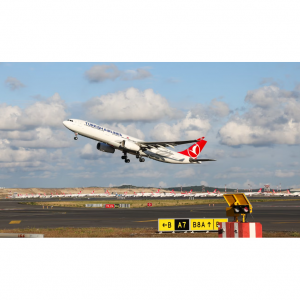
Is Turkish Airlines Good for International Flights?
-
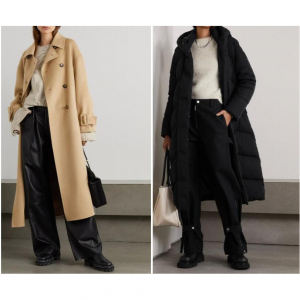
10 Best & Stylish Winter Coats for Women on NET-A-PORTER in 2025
-

Top & Best 12 Sneaker Apps/Websites for Raffles, Releases & Restocks in 2025
-
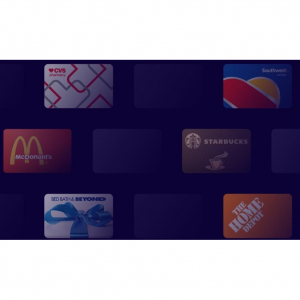
7 Best Gift Card Exchange Sites - Buy, Sell and Trade Discount Gift Card Safely and Instanly!
-

Top 9 Professional Skincare Brands for Licensed Estheticians 2025


